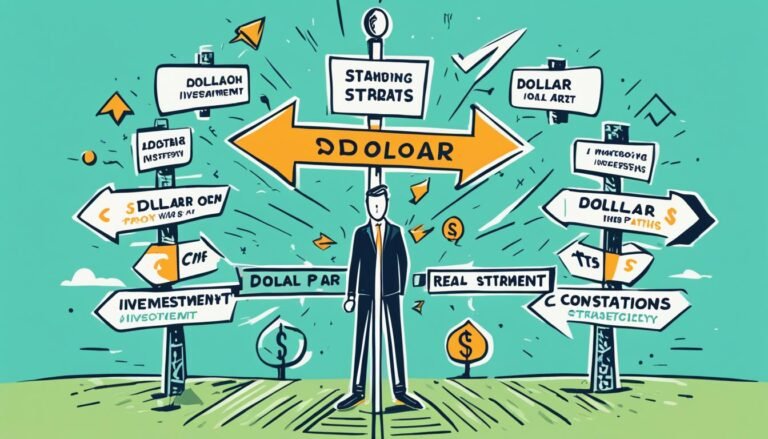Sustainability Reporting Standards and Practices
Welcome to the world of sustainability reporting, where businesses embrace ethical and transparent practices to drive sustainable development. In today’s global landscape, sustainability reporting plays a crucial role in promoting responsible corporate governance and fostering a vibrant business ecosystem. By voluntarily disclosing their environmental, social, and governance (ESG) performance data, companies not only demonstrate their commitment to sustainable business practices but also unlock numerous benefits for their stakeholders.
Within this realm of sustainability reporting, companies adhere to specific standards and practices to ensure the accuracy and reliability of their disclosures. These standards guide businesses in reporting on sustainability performance indicators, disclosing environmental impacts, and adopting sustainable practices throughout their operations. By implementing these frameworks, companies can effectively measure their progress and make informed decisions that contribute to a more sustainable future.
Key Takeaways:
- Sustainability reporting promotes ethical and transparent corporate governance
- ESG reporting drives sustainable business practices
- Standards and frameworks guide sustainability reporting practices
- Sustainability reporting offers benefits such as reputation enhancement and attracting investors
- Challenges include data gathering and reporting on environmental impacts
Understanding Sustainability Reporting
Sustainability reporting is a crucial aspect of modern business practices, enabling companies to showcase their commitment to social responsibility and environmental stewardship. By voluntarily disclosing their sustainability efforts and performance, organizations can demonstrate transparency and build trust with stakeholders, including investors, customers, employees, and the wider community.
At its core, sustainability reporting involves documenting and communicating a company’s environmental, social, and governance (ESG) impacts and performance. It goes beyond financial reporting, providing a comprehensive view of an organization’s sustainable business practices and their alignment with societal expectations and global sustainability goals.
“The integration of sustainability reporting into corporate strategies enables companies to proactively manage risks, seize opportunities, and drive long-term value creation.”
One of the key components of sustainability reporting is ESG reporting. Environmental factors encompass the impact on natural resources, emissions, waste, and climate change. Social aspects involve considerations related to employee welfare, human rights, community engagement, and diversity and inclusion. Lastly, governance encompasses the company’s leadership, ethics, compliance, and overall management structure.
ESG reporting provides a framework for businesses to assess and measure their sustainability performance. It enables companies to identify areas for improvement, set targets, and track progress over time. Furthermore, ESG reporting helps in identifying potential risks and opportunities, guiding decision-making processes that drive sustainable growth and value creation.
Sustainable business practices are not only beneficial for the environment and society, but they also contribute to the long-term success and resilience of companies. By integrating sustainability into their operations, organizations can enhance their brand reputation, attract socially conscious investors, and mitigate environmental and social risks. Moreover, sustainable practices often lead to cost savings, efficiency gains, and increased operational effectiveness.
Embedding Sustainability Reporting in Organizational DNA
To successfully embrace sustainability reporting and embed it in their organizational DNA, companies should:
- Establish clear sustainability goals: Set ambitious but achievable targets aligned with global sustainability frameworks such as the United Nations Sustainable Development Goals (SDGs).
- Engage stakeholders: Involve internal and external stakeholders, including investors, employees, customers, and local communities, to ensure the relevance and credibility of sustainability efforts.
- Collect and analyze relevant data: Implement robust data collection processes to effectively measure and monitor ESG performance, ensuring the accuracy and integrity of reported information.
- Align sustainability with corporate strategy: Integrate sustainability considerations into decision-making processes, empowering executives to make informed choices that balance financial, environmental, and social outcomes.
By following these best practices, organizations can unlock the true potential of sustainability reporting and contribute to positive societal and environmental change. It enables businesses to be proactive, accountable, and resilient in an ever-changing world where sustainable practices are becoming increasingly vital for long-term success.
Key Frameworks for Sustainability Reporting
When it comes to sustainability reporting, companies rely on key frameworks to guide their disclosure practices and ensure transparency in their sustainability performance. One such prominent framework is the Global Reporting Initiative (GRI) standards. These standards provide companies with guidelines and principles for reporting on sustainability performance indicators.
The GRI standards are widely recognized and accepted globally, offering a comprehensive framework that helps organizations measure and disclose their environmental, social, and governance (ESG) impacts. By following the GRI standards, companies can effectively communicate their sustainable business practices and demonstrate their commitment to responsible operations.
Through the GRI standards, companies can identify, assess, and report on a wide range of sustainability performance indicators. These indicators cover various aspects, including environmental impact, human rights, labor practices, product responsibility, and community engagement.
One of the strengths of the GRI framework is its focus on materiality. It encourages companies to identify and prioritize the sustainability issues that are most relevant to their business and stakeholders. This approach ensures that companies report on the issues that truly matter and have the greatest impact.
In addition to the GRI standards, sustainability disclosure plays a crucial role in enhancing transparency and accountability. Companies need to disclose relevant information regarding their sustainability practices and performance. This includes providing clear and accurate data on their environmental, social, and governance initiatives.
By adopting the GRI standards and prioritizing sustainability disclosure, companies can not only improve their sustainability practices but also enhance their reputation, attract conscious investors, and build trust with stakeholders. Sustainability reporting based on these frameworks serves as a valuable tool for organizations to measure their progress, set targets, and continuously improve their sustainable business practices.
For a better understanding, let’s look at some key sustainability performance indicators that companies commonly report on:
- Energy consumption and greenhouse gas emissions
- Water usage and wastewater management
- Diversity and inclusion metrics
- Labor rights and employee well-being
- Supply chain sustainability
- Product lifecycle and sustainable sourcing
- Community engagement and philanthropy
These indicators provide stakeholders with valuable insights into how companies perform in various sustainability aspects and drive positive change within their industry sectors.
Benefits of Sustainability Reporting
Sustainability reporting plays a crucial role in driving sustainable business practices and fostering a positive impact on the environment and society. By embracing sustainable business practices and implementing robust sustainability reporting frameworks, companies can reap a multitude of benefits.
Enhancing Reputation
One of the key benefits of sustainability reporting is the ability to enhance a company’s reputation. By transparently disclosing their sustainability initiatives, companies can showcase their commitment to environmental and social responsibility. This transparency can build trust among stakeholders, including customers, investors, and communities, leading to enhanced brand reputation and customer loyalty.
Attracting Investors
Sustainability reporting can be a powerful tool for attracting investors who prioritize environmental, social, and governance (ESG) factors in their investment decisions. Investors increasingly recognize the value of companies that prioritize sustainability and exhibit strong ESG performance. By demonstrating their sustainability efforts through robust reporting, companies can attract investors who align with their values and contribute to long-term financial stability.
Driving Sustainable Business Practices
Sustainability reporting is instrumental in driving sustainable business practices. Through regular monitoring and reporting on sustainability metrics, companies can identify areas for improvement, set goals, and track progress towards their sustainability targets. This process encourages companies to integrate sustainability into their core business operations, leading to more efficient resource management, reduced waste, and improved environmental and social outcomes.
Informing Decision Making
Sustainability reporting provides companies with valuable data and insights that inform strategic decision-making. By analyzing sustainability metrics, companies can identify emerging trends, evaluate the effectiveness of their sustainability initiatives, and make informed choices to align with their long-term objectives. This data-driven decision-making process enables companies to navigate rapidly evolving business landscapes while mitigating risks and capitalizing on emerging opportunities.
Meeting Regulatory Requirements
Sustainability reporting helps companies meet regulatory requirements related to environmental and social disclosure. Governments and regulatory bodies worldwide are increasingly imposing reporting obligations on companies to promote transparency and accountability. By adopting robust sustainability reporting practices, companies can ensure compliance with these requirements and avoid potential financial and reputational risks.
Improving Stakeholder Engagement
Effective sustainability reporting enables companies to engage with their stakeholders on a deeper level. By transparently communicating their sustainability performance, companies can foster meaningful dialogue with stakeholders, including employees, customers, suppliers, and local communities. This engagement can contribute to a stronger relationship, where stakeholders become advocates, providing valuable feedback, and supporting the company’s sustainable growth journey.
Overall, sustainability reporting serves as a catalyst for driving sustainable business practices and creating positive social and environmental impacts. By embracing robust reporting frameworks and leveraging sustainability metrics, companies can unlock numerous benefits, such as enhanced reputation, investor attraction, improved decision-making, and stakeholder engagement. It is evident that sustainability reporting is not only a regulatory requirement but also a valuable strategic tool for companies committed to a sustainable future.
Challenges of Sustainability Reporting
Implementing sustainability reporting practices can present companies with several challenges. From gathering and analyzing sustainability data to reporting on environmental impacts, it requires diligence and attention to detail to ensure accuracy and reliability in reporting.
One of the major challenges is collecting comprehensive sustainability data. Companies need to gather information on a wide range of key performance indicators (KPIs) across various aspects of their operations. This includes environmental data such as energy consumption, waste management, and carbon emissions, as well as social and governance-related data.
Accurately measuring and quantifying environmental impacts can also be demanding. Companies must track their ecological footprint, assess their impact on ecosystems, and calculate their water usage, among other metrics. This requires specialized knowledge and expertise to ensure that the reported data accurately reflects the company’s environmental performance.
Another challenge lies in the complexity of sustainability reporting frameworks and standards. Companies often need to navigate through multiple reporting frameworks, such as the Global Reporting Initiative (GRI) Standards, the Sustainability Accounting Standards Board (SASB), and the Task Force on Climate-related Financial Disclosures (TCFD). Understanding and aligning with these frameworks can be time-consuming and resource-intensive.
Companies must establish robust data management systems and processes to ensure the integrity and reliability of sustainability reporting.
Ensuring data accuracy and reliability is critical in sustainability reporting. Companies must establish robust data management systems and processes to collect, verify, and consolidate the necessary information. This involves engaging stakeholders across the organization, from different departments and business units, to ensure data consistency and transparency.
Additionally, companies face the challenge of engaging with external stakeholders, such as investors and customers, who increasingly demand transparency and accountability. They expect companies to demonstrate their commitment to sustainable business practices through credible and reliable sustainability reporting.
In summary, while sustainability reporting offers numerous benefits, it also poses significant challenges for companies. To overcome these challenges, organizations need to invest in data management systems, build internal capabilities, and develop a deep understanding of sustainability reporting frameworks. By doing so, companies can effectively navigate the complexities and contribute to a more sustainable future.
Challenges of Sustainability Reporting:
| Challenge | Description |
|---|---|
| Collecting Comprehensive Sustainability Data | Gathering information on various key performance indicators (KPIs) across different aspects of operations, including environmental, social, and governance-related data. |
| Measuring and Quantifying Environmental Impacts | Accurately tracking and reporting environmental impacts, such as ecological footprint, water usage, and energy consumption. |
| Complexity of Reporting Frameworks and Standards | Navigating through multiple reporting frameworks, such as the Global Reporting Initiative (GRI) Standards, the Sustainability Accounting Standards Board (SASB), and the Task Force on Climate-related Financial Disclosures (TCFD). |
| Data Accuracy and Reliability | Establishing robust data management systems and processes to ensure accurate and reliable sustainability reporting. |
| Engaging with External Stakeholders | Meeting the increasing demand for transparency and accountability from investors, customers, and other external stakeholders. |
Best Practices in Sustainability Reporting
Effective sustainability reporting plays a crucial role in promoting sustainable business practices and corporate sustainability reporting. By integrating sustainability into corporate strategies, setting realistic targets, engaging stakeholders, and ensuring the quality and integrity of sustainability data, companies can demonstrate their commitment to sustainable development.
Integrating sustainability into corporate strategy involves aligning sustainability goals with overall business objectives. By incorporating environmental, social, and governance (ESG) considerations into decision-making processes, organizations can drive positive impact and create long-term value.
Setting realistic targets is essential for measuring progress and demonstrating commitment to sustainability. By establishing key performance indicators (KPIs) and quantifiable goals, companies can track their performance and report on their sustainability achievements accurately.
Engaging stakeholders is critical for successful sustainability reporting. By involving stakeholders such as employees, customers, suppliers, and communities in sustainability initiatives, companies can gain valuable insights, build trust, and ensure their reporting reflects the interests of all relevant parties.
Ensuring the quality and integrity of sustainability data is essential for reliable reporting. By implementing robust data collection, measurement, and verification processes, companies can enhance the credibility of their sustainability reports and gain the trust of stakeholders.
To illustrate the best practices in sustainability reporting, the following table provides an overview of companies known for their exceptional commitment to sustainable business practices:
| Company | Sustainability Initiatives |
|---|---|
| Unilever | Unilever’s Sustainable Living Plan focuses on sustainable sourcing, reducing environmental footprint, and improving social impact. |
| Patagonia | Patagonia is known for its transparent supply chain, commitment to environmental conservation, and support for fair labor practices. |
| Interface | Interface’s Mission Zero commitment aims to eliminate any negative impact on the environment by 2020. |
These companies serve as role models in driving sustainability through their business practices and robust reporting processes. By following their lead and adopting similar best practices, businesses can make meaningful progress towards a sustainable future.
Incorporating these best practices into sustainability reporting can help companies showcase their commitment to sustainability, attract investors who prioritize sustainable investments, and enhance their reputation among stakeholders.
Evolving Regulatory Landscape for Sustainability Reporting
In recent years, sustainability reporting has gained significant traction as companies all over the world recognize the importance of disclosing their environmental, social, and governance (ESG) practices. As a result, the regulatory landscape surrounding sustainability reporting is evolving at a rapid pace.
With growing concerns about climate change, social inequalities, and corporate accountability, investors and stakeholders are increasingly demanding more transparency and accountability from businesses. This has led to a surge in the demand for ESG reporting to better understand the sustainability performance of organizations.
Regulators worldwide have started to impose new sustainability disclosure requirements to ensure that companies are addressing critical ESG issues. Governments and industry bodies are developing guidelines and frameworks to standardize sustainability reporting practices and make the information more comparable and reliable.
“Sustainability reporting plays a crucial role in building trust, demonstrating accountability, and driving positive change in corporate behavior.” – Jane Adams, CEO of Sustainable Reporting Association
One prominent example of this is the European Union’s Sustainable Finance Disclosure Regulation (SFDR), which aims to promote transparency and comparability of ESG data for financial market participants. The SFDR establishes mandatory reporting obligations for financial products and encourages companies to integrate sustainability factors into their investment decision-making processes.
Similarly, the Task Force on Climate-related Financial Disclosures (TCFD), established by the Financial Stability Board, has developed a framework to help companies disclose climate-related risks and opportunities in their financial filings. The TCFD framework has gained global recognition and is widely adopted by companies seeking to provide comprehensive information on climate-related issues.
Emerging Trends in Sustainability Reporting Regulations
As the demand for sustainable business practices continues to grow, regulatory bodies are focusing on aligning sustainability reporting requirements with international standards and frameworks. The Global Reporting Initiative (GRI) standards, for example, provide comprehensive guidelines for companies to report on their sustainability performance, offering a globally recognized framework for sustainability disclosure.
In addition to the GRI, other international organizations such as the Sustainability Accounting Standards Board (SASB), the Carbon Disclosure Project (CDP), and the Integrated Reporting Framework (IRF) also provide guidance on specific ESG aspects or integrated reporting, giving companies a wide range of resources to inform their sustainability reporting practices.
Moreover, some countries have introduced legislation mandating specific sustainability reporting requirements. For instance, in the United States, the Securities and Exchange Commission (SEC) is considering implementing regulations that would require companies to disclose climate-related risks and impacts. Australia has also proposed legislation that would make it mandatory for certain companies to report on climate-related risks and financial impacts.
As sustainability reporting continues to evolve, companies must stay informed about the latest regulatory developments and ensure compliance with the disclosure requirements in their respective jurisdictions. By doing so, organizations can effectively communicate their sustainability efforts, enhance stakeholder trust, and contribute to the transition towards a more sustainable future.
| Regulatory Trend | Impact |
|---|---|
| Increasing demand for ESG reporting | Companies need to disclose their sustainability practices to meet investor expectations and attract capital. |
| Mandatory sustainability disclosure requirements | Regulators impose reporting obligations to enhance transparency and accountability in corporate practices. |
| Alignment with international standards | Companies adopt globally recognized frameworks to ensure consistency and comparability in sustainability disclosure. |
| Proposed legislation on climate-related reporting | Companies may face new requirements to disclose climate-related risks and financial impacts. |
Integrating Sustainability Reporting into Corporate Governance
In today’s rapidly changing business landscape, sustainability reporting plays a critical role in promoting **sustainable business practices** and ensuring **corporate sustainability reporting**. To effectively integrate sustainability reporting into corporate governance practices, companies need to prioritize **sustainability reporting** as a fundamental aspect of their operations.
One of the key factors in successfully integrating sustainability reporting is senior leadership commitment. **Sustainable business practices** and **corporate sustainability reporting** must be championed by top-level executives who prioritize ethical and responsible decision-making. When leaders actively support sustainability initiatives, it creates a culture of accountability and transparency throughout the organization.
Another crucial aspect is establishing governance structures that facilitate effective **sustainability reporting**. Companies should establish dedicated sustainability teams or committees with the responsibility of overseeing and driving sustainability initiatives. These structures ensure that sustainability efforts are adequately resourced, monitored, and aligned with the company’s overall strategic objectives.
Embedding sustainability into decision-making processes is another vital step in integrating sustainability reporting. When **sustainable business practices** are considered in every strategic decision, it becomes ingrained in the company’s DNA. This requires incorporating sustainability metrics and goals into performance evaluations, incentive structures, and risk management frameworks.
Integrating sustainability reporting into corporate governance is not just a compliance exercise; it’s an opportunity for companies to foster resilience, long-term value creation, and positive societal impact.
By embracing sustainability reporting within their corporate governance practices, companies can align their operations with societal and environmental goals, mitigating risks, and capitalizing on opportunities associated with sustainable development. Furthermore, it allows them to attract socially conscious investors and consumers who prioritize companies committed to **sustainable business practices**.
Benefits of Integrating Sustainability Reporting into Corporate Governance:
- Enhanced transparency and accountability
- Improved risk management
- Strengthened stakeholder trust and engagement
- Increased operational efficiency
- Enhanced reputation and brand value
Integrating sustainability reporting into corporate governance is a holistic approach that drives long-term success while contributing to a more sustainable future. It empowers companies to make informed decisions, measure their progress, and actively contribute to addressing pressing environmental and social challenges.
Conclusion
Throughout this article, we have explored the importance of Sustainability Reporting Standards and Practices in promoting ethical and transparent corporate governance. Sustainability reporting plays a crucial role in driving sustainable business practices and fostering long-term value creation. By integrating environmental, social, and governance (ESG) factors into their reporting, companies can better understand their impact on the world and make informed decisions that benefit both their stakeholders and the planet.
One key takeaway from this discussion is the need for businesses to adopt sustainable business practices. By implementing sustainability reporting, companies can measure and manage their environmental and social impacts more effectively. This not only enhances their reputation but also attracts investors who are increasingly interested in supporting businesses that prioritize sustainability.
Moreover, by adhering to Sustainability Reporting Standards and Practices, companies can ensure transparency and accountability in their reporting. It allows stakeholders to gain a comprehensive understanding of a company’s sustainability performance, enabling them to make informed decisions and hold businesses accountable for their actions.
In conclusion, sustainability reporting is not just a trend but a necessity in today’s business landscape. By embracing sustainable practices, companies can contribute to a greener and more equitable world. Through effective reporting, businesses can create value, build trust, and drive positive change, all while meeting the expectations of stakeholders and adhering to global sustainability standards.








